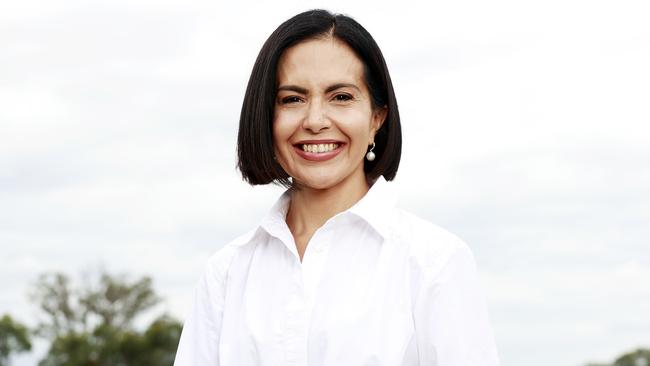Push is on for teacher “apprentices” to get more on the job training
NSW Education Minister Prue Car will push the rest of the country towards hands-on training for would-be teachers.

Universities will be forced to provide apprenticeship-style teaching degrees if demands from Australia’s biggest schooling system for more on-the-job training are met.
NSW Education Minister Prue Car says she will push for national reforms to teacher training at a meeting with her federal, state and territory counterparts in July.
In a damning assessment of initial teacher education, the new Minns Labor government minister said too many young teachers were leaving university unprepared for classroom teaching.
Ms Car said she was concerned that one in five NSW school students was being taught maths by a teacher who had not specialised in the subject at university.
“Young teachers are telling me that the degrees they’ve done do not prepare them adequately for teaching in the classroom,’’ she told The Australian in an exclusive interview.
“We need to do something about what’s happening at university. It’s definitely worth looking at ways of getting student teachers more time in the classroom as part of their university degree.
“I’m really interested in working with state and territory ministers and the commonwealth minister (Jason Clare) on how we can improve initial teacher education to be more reflective of what teachers need to know before they get in the classroom, to better prepare them for how to manage kids in a classroom, and to be more aligned with the curriculum they’re teaching.”
The federal government’s review of 300 ITE programs across 48 education providers has called for a greater focus on classroom management and in-school practicum placements, as well as strategies for teaching literacy and numeracy.
The Teacher Education Expert Panel, chaired by University of Sydney vice-chancellor Mark Scott, will provide its final advice to ministers late next month.
Ms Car said it was “pretty obvious” that undergraduate teachers needed more time in classrooms, learning from experienced teachers. “That would seem like a pretty decent solution to a range of problems that we face,” she said.
“(It’s about) getting student teachers in the classroom earlier, to give the teachers in schools some relief, as well as give (undergraduate teachers) an on-the-job, realistic opportunity to supplement their important tertiary education.”
Australian Council of Deans of Education president Michele Simons – a member of the expert panel – warned that some universities would need more time than others to implement any reforms ordered by ministers. “We can always do a better job,” she said.
“For some higher education providers it may require significant change, for others no change at all. ITE courses are accredited so any change does have to be signed off by teaching regulatory authorities.”
The Australian Education Research Organisation – whose chief executive, Jenny Donovan, is also part of the six-member expert panel – is pushing universities to offer more “practice-based” teacher training, including internships and work experience placements. In its submission to the panel’s ongoing inquiry into ITE reforms, AERO calls for federal funding to help universities redesign their courses.
“AERO’s board supports ITE postgraduate program designs routinely embodying more sustained school placements, under models that include extended internships and employment options as teachers or teacher aides,” it states. “Undergraduate programs should also evolve into designs with more substantial internships and employment options, at least in the final year.”




To join the conversation, please log in. Don't have an account? Register
Join the conversation, you are commenting as Logout